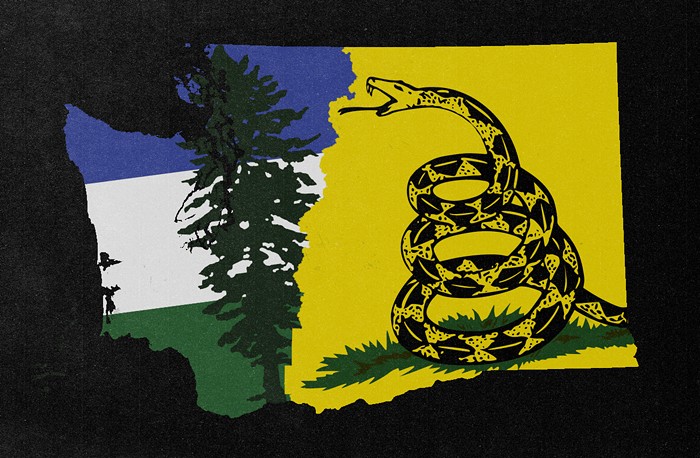
Back in December, I started writing about how tech giants like Facebook, Google, and Twitter are failing to comply with Seattle and Washington State laws that are intended to bring valuable transparency to political advertisements.
These laws require all companies that sell political advertising aimed at our city or state elections to disclose, upon request, the "exact nature and extent" of those ads, who paid for them, and how much was paid. But the tech giants are not currently complying with these laws—believe me, I tested—and so far they won't say why.
Tomorrow, Seattle Ethics and Elections Commission Executive Director Wayne Barnett will sit down with a delegation from Facebook that's flying up from California to discuss the matter. Likely, there will be questions at this sit-down about what "exact nature and extent" means in the context of political ads on digital platforms.
Well, today, Washington State Governor Jay Inslee's office weighed in with the governor's view on what the tech giants should be disclosing (adding Inslee's voice to those of US Senators Patty Murray and Maria Cantwell, Seattle City Council President Bruce Harrell, and former Federal Election Commission Chair Ann Ravel).
"As a general principle, the governor always favors increased transparency in government and elections," said Inslee spokesperson Jaime Smith. "Current state law should require entities such as Facebook, Google or Twitter to disclose detailed information about political advertising, including ad targeting information."
Smith continued: "This is especially important as the use of micro-targeted digital advertising becomes more prevalent. There are worthwhile discussions in the legislature now about how to make the inclusion of online platforms more explicit in statute and provide clear direction to campaigns and advertisers about the kind of transparency we expect."
I'll be following up soon on the present discussions in the state legislature regarding online political ad transparency.
But for anyone just tuning in, a major issue with online political ads—and one that makes them distinct from political ads broadcast on television or printed in newspapers—is that, as we saw in the 2016 US presidential election, digital ads can be very precisely targeted at certain small groups of voters. This makes them at once uniquely effective and uniquely hard to track.
The Washington State and Seattle laws that require companies to disclose "the exact nature and extent" of their political ads have their origins in the 1970s, when state voters, disgusted by that era's dirty election tricks and influence-peddling, overwhelmingly passed a landmark people's initiative mandating greater transparency in Washington elections.
It's certainly true that online ad targeting didn't even exist as a concept back in the 1970s. But the laws that grew out of that people's initiative are still on the books and now apply to digital advertisers, too. As Inslee's spokesperson told me, "With online ads, it stands to reason you should also be able to see which 'market' someone is buying in—even if it’s not geographically based."
We'll find out soon whether this type of reasoning wins out in Seattle's discussions with Facebook and Google.
Meanwhile, the state Public Disclosure Commission—which was also created by the 1970s people's initiative—says that it, too, believes state election transparency laws apply "to Facebook, Google, and other forms of social media and online advertising."
The commission plans to "get more concrete guidance in place" early this year and will be closely following Seattle's attempt to apply its own municipal law to the companies.















